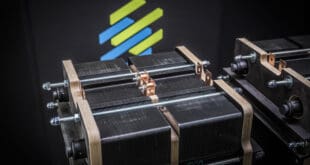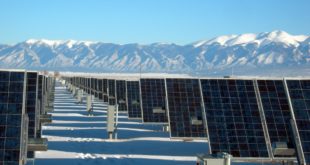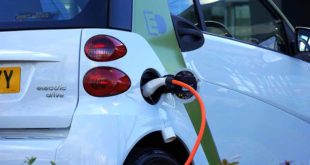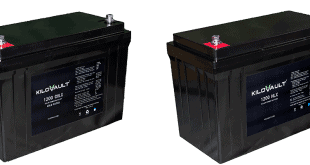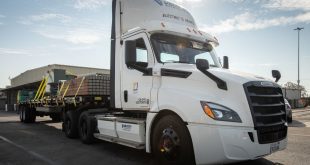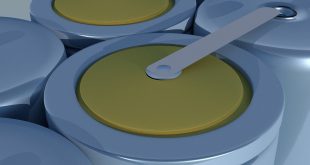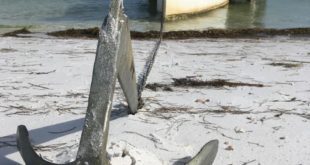Axion Power Chosen for Battery Mini Power Cube in Zero Energy Building in Washington DC Naval Yard
 NEW CASTLE, Pa. , Jan. 4, 2012 — Axion Power International, Inc. (OTC Bulletin Board: AXPW), the developer of advanced leadcarbon PbC® batteries and energy storage systems, announced today that it was awarded a purchase order from SilTek Inc. confirming their participation in a Zero Energy Building in the Washington DC Naval Yard. Axion will be providing an array of its PbC batteries, system electronics and battery management system that together will serve as an example of Axion’s “mini-Cube” concept based on the scalability, up or down, of its primary PowerCube™. The mini-Cube, which will provide demand response energy storage that will be grid network tied, will be linked to a 32kW solar panel array and will supply standby power service for this Zero Energy Administration Building. The project is underwritten by the US Navy, and the purchase order calls for Axion’s work to begin in January with the full 36 PbC battery mini-PowerCube system to be completed in the first quarter of 2012. The principal contractor for the project is Herndon VA -based SilTek Inc.
NEW CASTLE, Pa. , Jan. 4, 2012 — Axion Power International, Inc. (OTC Bulletin Board: AXPW), the developer of advanced leadcarbon PbC® batteries and energy storage systems, announced today that it was awarded a purchase order from SilTek Inc. confirming their participation in a Zero Energy Building in the Washington DC Naval Yard. Axion will be providing an array of its PbC batteries, system electronics and battery management system that together will serve as an example of Axion’s “mini-Cube” concept based on the scalability, up or down, of its primary PowerCube™. The mini-Cube, which will provide demand response energy storage that will be grid network tied, will be linked to a 32kW solar panel array and will supply standby power service for this Zero Energy Administration Building. The project is underwritten by the US Navy, and the purchase order calls for Axion’s work to begin in January with the full 36 PbC battery mini-PowerCube system to be completed in the first quarter of 2012. The principal contractor for the project is Herndon VA -based SilTek Inc.
Axion Power Chairman & CEO Thomas Granville commented, “Although this is a small project, in terms of dollars and number of batteries, it is a significant step forward because it comes on the heels of November’s ceremonious integration of our full PbC PowerCube onto the PJM network (a regional transmission organization founded in 1927, ensures the reliability of the high-voltage electric power system serving 58 million people in all or parts of 13 states and the District of Columbia ). At the unveiling ceremony with PJM, we spoke of the scalability of our PowerCube technology; this project will be the first deployment demonstrating the range (from small 10kW residential units, to stacked cube modules providing 20MW) of this application. It is also an important step forward because of the strong interest the US federal government in general, and the armed forces in particular, have in zero-energy projects that reduce carbon footprints. Because of our PbC battery’s extended cycle life, high rate of charge acceptance and fast re-charging capability, Axion is able to offer metrics that make economic sense especially when compared to other more exotic chemistries that are currently in the marketplace. We are pleased and honored to be working with SilTek and the US Navy on this important project.”
The Stella Group, Ltd, President Scott Sklar commented, “The PbC batteries offer the right capabilities with their hybrid storage able to handle varying loads for net-zero energy buildings and smart grid applications that are being scaled by the US Navy and other services within the Department of Defense. In addition, PbC batteries are 100% recyclable and made in the USA .” Sklar, early advisor to NAVFAC on this project and various other ongoing DOD projects and Adjunct Professor at The George Washington University , stated further, “Both the Department of Defense and private industry are increasing their focus on renewable energy as a means of decreasing electric grid failures, reducing carbon and particle-emitting coal-fired plants, strengthening national security and diminishing US dependence on foreign oil. Utilization of advanced energy storage technologies, particularly economically feasible technologies such as PbC-enabled PowerCubes (of all sizes), can be a leading means of accomplishing those goals.”
PbC technology is proprietary to Axion Power and is protected by multiple patents issued over the last decade. Basically activated carbon is substituted for lead in the negative electrode in an otherwise traditionally constructed ‘lead-acid’ battery. But when compared to traditional, AGM, advanced lead-acid batteries or even lead-acid with carbon additives, the new PbC lead/carbon chemistry creates a much longer lifespan (3 to 4 times), much greater charge acceptance in partial state of charge applications (10 to 20 times more depending on the “state” of the battery), as well as faster re-charging capabilities (again depending on application – at least twice as fast but up to 10 times faster). When compared to some of the more exotic chemistries such as lithium ion, the PbC battery offers a much stronger safety profile, operates at higher efficiency at C° or sub C° temperatures and most importantly, has a total life cycle cost structure that is a fraction of the total life cycle cost of these more highly publicized exotic chemistries. PbC batteries are made in the USA , at Axion’s facilities in New Castle PA. , and they can be made with readily available domestic raw materials.
 Alternative Energy HQ solar power for homes, wind energy, and bio fuel issues
Alternative Energy HQ solar power for homes, wind energy, and bio fuel issues

